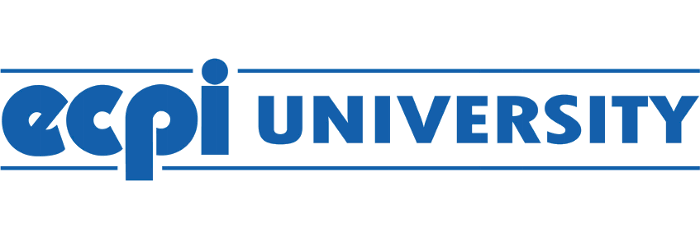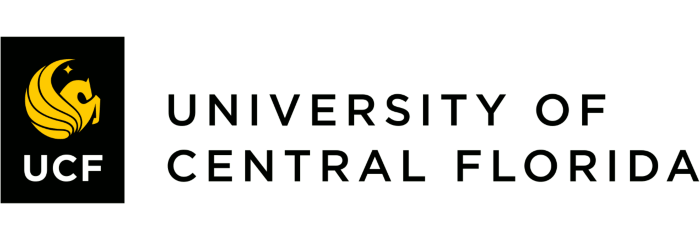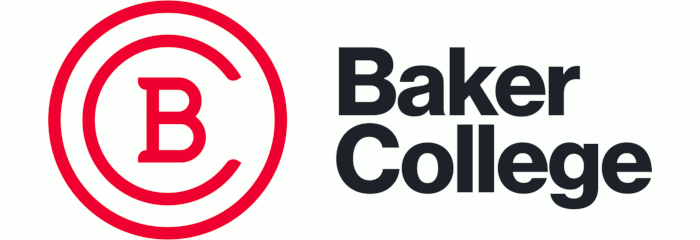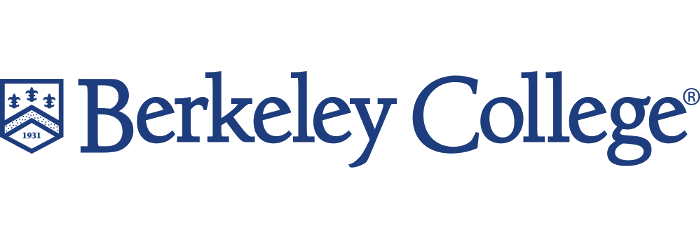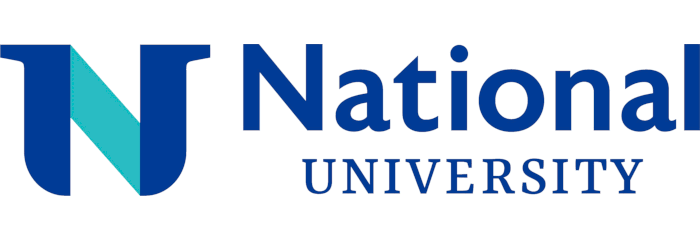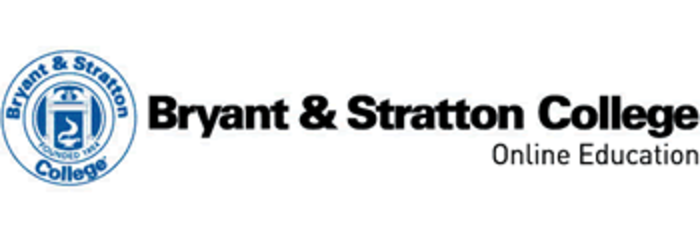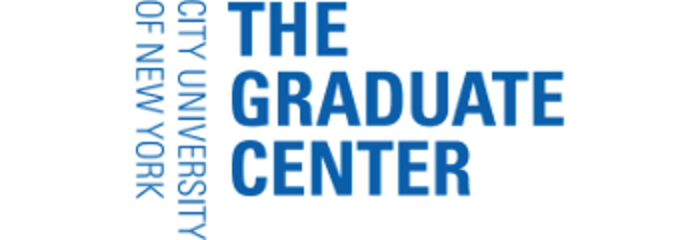Most Popular Online Degrees in Healthcare Administration 2025
Our list of the most popular online degrees in healthcare administration highlights accredited schools ranked by the number of students graduating with this degree.
Key Takeaways:
- At #1, Southern New Hampshire University Online is the most popular choice with 1,064 graduates from its online bachelor’s in healthcare administration. The school also ranks #1 nationally for online enrollment with over 154,000 distance learners total.
- Capella University delivers strong outcomes for healthcare admin alums, who graduate with the highest median graduate earnings at $71,538.
Read our methodology for details on data sources, eligibility, and quality controls. Below our analysis, we also feature an interview with Joseph Lopez, founder of AzivMedics, who shares insights on how healthcare administration professionals can be the most successful in their programs.
Most Popular Online Degrees in Healthcare Administration 2025
| Rank | School | Graduates | Annual Tuition | Median Salary | Recommendation |
|---|---|---|---|---|---|
| Southern New Hampshire University Online | 1,064 | $9,900 | $61,580 | 69% | |
| Purdue Global | 589 | $11,130 | $51,707 | 74% | |
| Florida International University | 180 | $16,997 | $55,541 | 93% | |
| Columbia Southern University | 128 | $8,100 | $60,480 | 79% | |
| Colorado State University Global | 129 | $11,250 | $70,587 | N/A | |
| ECPI University Online | 81 | $18,484 | $47,242 | N/A | |
| Liberty University | 66 | $11,700 | $56,943 | 75% | |
| University of Central Florida | 53 | $18,481 | $57,999 | 94% | |
| Capella University | 60 | $14,436 | $71,538 | 76% | |
| Baker College Online | 55 | $13,500 | $49,851 | N/A | |
| Berkeley College | 50 | $27,900 | $49,912 | N/A | |
| National University | 43 | $4,162 | $59,529 | N/A | |
| DeVry University | 48 | $15,420 | $55,014 | 65% | |
| Bryant & Stratton College Online | 41 | $20,460 | $43,215 | 63% | |
| CUNY Graduate School and University Center | 34 | $15,360 | N/A | 84% |
Most Popular Online Degrees in Healthcare Administration 2025 - Program Details
- Graduates: 1,064
- Annual Tuition: $9,900
- Median Salary: $61,580
- Recommendation: 69%
Why we like them: Ranked first, SNHU graduated over 1,000 online healthcare administration majors, a scale that signals employer visibility as well as a strong peer-and-alumni network. SNHU has two concentrations to sharpen career alignment, including Patient Safety and Quality. Both ahve AUPHA-aligned competencies tied to the Healthcare Leadership Alliance framework.
- Graduates: 589
- Annual Tuition: $11,130
- Median Salary: $51,707
- Recommendation: 74%
Why we like them: At Purdue Global, we love that you can pilot the program with a 3‑week, no‑obligation trial. That's just for starters. We also believe the ExcelTrack model is a differentiator because it lets you progress at your pace by demonstrating mastery, often finishing faster and for less money.
- Graduates: 180
- Annual Tuition: $16,997
- Median Salary: $55,541
- Recommendation: 93%
Why we like them: FIU integrates systems engineering into the BHSA core, a rare emphasis that prepares you to optimize workflows, finances, and technology across health organizations. We appreciate this operations-focused approach. Plus, FIU’s Associate Membership in AUPHA opens scholarship access and the rotating Bugbee-Falk Award.
- Graduates: 128
- Annual Tuition: $8,100
- Median Salary: $60,480
- Recommendation: 79%
Why we like them: At CSU, healthcare admin students can transfer up to 90 of the 120 required credits, letting adult learners and career changers finish faster and at lower cost. This is among the most flexible transfer policies in the field. And unlike most other programs, CSU includes digital textbooks in tuition rates.
- Graduates: 129
- Annual Tuition: $11,250
- Median Salary: $70,587
- Recommendation: N/A
Why we like them: During this healthcare administration and management program, you can stack targeted credentials, such as undergraduate certificates in Healthcare Quality and Patient Safety or Long-Term Care Administration, alongside the major to build a solid portfolio. And graduates of this program make a median salary of $70,587 just four years after graduation.
- Graduates: 81
- Annual Tuition: $18,484
- Median Salary: $47,242
- Recommendation: N/A
Why we like them: At ECPI's BSHA program online, you work with hands-on elements, including labs in Epidemiology and Business Process Improvement, plus Applied Project Management with a lab. And if you pursue long-term care leadership, you receive a built-in Review for National Exam to streamline licensure preparation.
- Graduates: 66
- Annual Tuition: $11,700
- Median Salary: $56,943
- Recommendation: 75%
Why we like them: Liberty's online BS in Healthcare Administration has an internship pathway that is strongly recommended and supported for online learners, giving you structured access to real-world experience and networking while you study virtually. You can transfer in up to 75% of the degree and free electronic textbooks are provided.
- Graduates: 53
- Annual Tuition: $18,481
- Median Salary: $57,999
- Recommendation: 94%
Why we like them: UCF’s program is designed for those who want to lead in healthcare without needing prior clinical experience, focusing on organizational management, ethics, and healthcare systems rather than direct patient care. This health services administration degree can result in healthcare roles like health information manager or community service manager.
- Graduates: 60
- Annual Tuition: $14,436
- Median Salary: $71,538
- Recommendation: 76%
Why we like them: Capella offers two learning formats — FlexPath and GuidedPath — so you choose self-paced, competency-based progress or structured 10-week quarters. The SoBTH Advisory Board shapes the curriculum with employer input, a trial course to test the online experience before committing, and a Career Development Center that includes one-on-one coaching.
- Graduates: 55
- Annual Tuition: $13,500
- Median Salary: $49,851
- Recommendation: N/A
Why we like them: BCO delivers the health administration major exclusively online in accelerated 8-week terms while still requiring a 121-180-hour, for-credit externship. So, this healthcare administration bachelor's degree is a good choice if you want flexible coursework with real workplace immersion. The College of Health Science also integrates Extended Reality learning, offering immersive simulations.
- Graduates: 50
- Annual Tuition: $27,900
- Median Salary: $49,912
- Recommendation: N/A
Why we like them: Berkeley's online degree is in the business school with IACBE specialized accreditation, which gives you a business-first backbone. You would train on industry software and data workflows tied to real administrative tasks, and you can complete an internship or job-related assignment.
- Graduates: 43
- Annual Tuition: $4,162
- Median Salary: $59,529
- Recommendation: N/A
Why we like them: NU’s BSHA has 12-week quarters built from three four-week courses taken one at a time. You also complete an immersive, two-month, S/H/U-graded internship capstone with site assignments matched to your interests. It also has a unique focus on digital health delivery—telehealth, mHealth apps, health-related social networks, and secure interoperability across ecosystems.
- Graduates: 48
- Annual Tuition: $15,420
- Median Salary: $55,014
- Recommendation: 65%
Why we like them: DeVry's program includes hands-on practice with McGraw Hill Connect simulations and patient record systems. The curriculum is built on input from the Association of University Programs in Health Administration. And if you choose, there is also a Healthcare Analytics specialization that trains you on modern data methods, pattern identification, and operational analysis.
- Graduates: 41
- Annual Tuition: $20,460
- Median Salary: $43,215
- Recommendation: 63%
Why we like them: B&SC’s program is part of a unique stackable credential model, allowing students to start with a health services assistant diploma or associate degree and progress seamlessly to the bachelor’s level. This pathway is ideal for adult learners building on prior education or work experience.
- Graduates: 34
- Annual Tuition: $15,360
- Median Salary: N/A
- Recommendation: 84%
Why we like them: Taught within New York City’s extensive healthcare ecosystem, the curriculum emphasizes healthcare management through the lens of evolving regulations, technology, and preventive care, preparing students to navigate complex public health systems, not just private healthcare administration.
Inside Healthcare Administration: Practical Advice from AzivMedics Founder Joseph Lopez

Founder & CEO of AzivMedics
"With a team of over 150 elite nurses — ranging from ER to SWAT-trained professionals — I’ve overseen both clinical and administrative operations firsthand.
Hands-On Experience:
Theory looks neater than it feels on a sticker chart in the living-room home office. An afternoon slot at a busy outpatient desk or a rotation through records gives the keyboard shortcuts footage and the real body language of patients.
Course List:
Students pore over anatomy prefixes, insurance deadline loopholes, keyboard macros, and HIPAA fine print. Conversation tactics, meeting muddle proofing, and the odd crash course in tough-love leadership sneak in under the radar.
Your Tech Toolbox:
Epic clicks open like a sprawl of file cabinets. Kareo and AdvancedMD sort numbers into columns and invoices; eClinicalWorks juggles dates until everyone sees their next appointment. Each suite mutters its own dialect nobody else believes is intuitive.
Caregiver to Admin Shift:
A veteran nurse or med-tech already reads a worried brow better than an algorithm. Layer fluency in tickets, merges, and memo chains, and the desk seat becomes its own kind of healing space-with fewer callouses, thankfully."
FAQs About an Online Degree in Healthcare Administration
What Is a Bachelor's in Healthcare Administration Degree?
An online degree in healthcare administration offers a comprehensive education in healthcare management, policy, and ethics. These programs equip you with the skills to manage healthcare facilities, understand healthcare laws, and improve patient services. The curriculum typically covers subjects like medical terminology, health information systems, financial management, and human resources in healthcare settings.
Healthcare administration bachelor's programs are designed to teach students to perform common managerial functions in the healthcare industry, such as planning schedules, monitoring budgets, and hiring employees. Students who plan to go into management in this field need specialized knowledge of healthcare facilities, medical services, health informatics, and the U.S. healthcare system's regulations.
Many accredited colleges offer fully online bachelor's in healthcare administration degree programs. The majority of online programs on our list lead to a Bachelor of Science (BS), which is a more technically oriented program. The courses focus on developing both managerial and technical skills that help prepare graduates for positions in the healthcare industry, such as organizational management, data management, or IT management.
Some schools, however, offer an online Bachelor of Arts (BA) in Healthcare Administration. This degree will likely have similar courses from arts and humanities programs, such as a bachelor's in psychology or a bachelor's in sociology. Much like a BS in Healthcare Administration, a BA also prepares students for management positions. However, given the inclusion of more general education courses, a BA in Healthcare Administration may be better suited for students interested in keeping their career options open.
If you're looking for an affordable degree, explore our rankings of affordable online bachelor's in healthcare administration and affordable online master's degrees in healthcare administration.
Can You Get a Bachelor's in Healthcare Administration Online?
Yes, you can earn your bachelor's degree in healthcare administration online. However, you'll want to check with a program advisor to see if any on-campus coursework is necessary. Some programs require students to attend on-campus intensive courses where they spend several days in person at the start and end of a program. You may also have to complete an on-site practicum for real-world experience at a healthcare facility near where you live. A program advisor may be able to help you secure an opportunity.
Online programs offer the same rigor as on-campus programs, are often taught by the same instructors, and are becoming increasingly popular. They may also be more affordable than a traditional on-campus program, which may yield a higher return on your investment. Many also find their career opportunities just as competitive with an online degree as if completed on campus. The healthcare industry tops the list of industries that hire the most online graduates.
How Long Does It Take To Earn a Bachelor's in Healthcare Administration?
Online or on campus, healthcare administration bachelor's programs generally require the completion of 120-124 credit hours. Full-time healthcare administration majors may be able to complete the graduation requirements in four to five years, while part-time students may need additional time. Some online schools offer accelerated programs, which students can finish in approximately three years. Enrollees with an associate degree in a related area can shorten the length of a healthcare administration program by transferring credits that meet a program's coursework requirements.
What Courses Are Included in a Bachelor's in Healthcare Administration?
Students enroll in online healthcare administration programs to learn about the unique challenges, laws, and technologies they are likely to encounter in the workplace after graduation. While coursework may vary depending on the program, the following is a list of common core courses in a healthcare administration bachelor's degree:
- Finance and Accounting in Healthcare: This course provides students with a basic understanding of managerial accounting. It typically covers accounting terminology, financial statements, budgeting, and the time value of money. Students may also learn how they can apply their knowledge to real-world examples from the healthcare industry.
- Health Informatics: Healthcare information systems are essential to improving patient care, increasing operational efficiency, and ensuring compliance with federal and state regulations. In this course, faculty generally introduce students to healthcare technologies, explain how data helps deliver services, and emphasize the need for taking an ethical and legal approach to managing information.
- Human Resource Management: An introductory course on human resource management offers students a range of strategic approaches regarding how to manage employees and guide an organization's direction. Specific topics may include performance evaluations, retention, compensation, inclusion and diversity, culture, health and safety issues, labor union relations, and regulatory compliance.
- Management and Leadership in Healthcare: This course focuses on developing some basic managerial skills that a healthcare administrator could utilize in the field. These skills may include strategic planning, decision-making, communication, and critical thinking. Additional topics may include team and individual behavior in the workplace, diversity and equality issues, change management, and organizational development.
What Are the Admission Requirements for a Bachelor's in Healthcare Administration?
Depending on the admissions format of the college or university, prospective students can submit their applications as early as a full year preceding the fall semester when they plan to start attending college. Some colleges are more selective than others, and the most selective colleges often have earlier deadlines.
Many colleges require applicants to submit the following along with their online application:
- Official high school or GED transcripts, usually with a minimum GPA of 2.5-3.0
- Scores from college entrance exams, such as the SAT or ACT
- A personal essay on a designated topic
- One or more letters of recommendation from teachers, coaches, or other mentors
- A list of extracurricular activities, jobs, and volunteer activities
What Can You Do With a Bachelor's Degree in Healthcare Administration?
An online healthcare administration degree program helps prepare students for entry-level management positions in this growing field, with graduates potentially going on to work in areas such as human resources and general management. Some graduates may also pursue advanced degrees to position themselves for senior management positions in larger healthcare organizations.
An in the U.S. and the pandemic have increased the need for healthcare services provided by trained professionals with medical degrees, including managers with healthcare degrees. According to the Bureau of Labor Statistics (BLS), are projected to grow significantly faster than the average for all occupations, with 1.8 million openings each year through 2032.
The U.S. healthcare industry is vast and diverse, encompassing many types of healthcare providers. Hospitals, nursing homes, private practices, and more need healthcare management professionals to keep them running smoothly and efficiently. Graduates with a bachelor's degree and some years of work experience may want to become a . They oversee the operation of private practices, hospitals, clinics, and other healthcare providers by setting policies, monitoring budgets, and evaluating employees' work.
What Can You Do After Earning a Bachelor's in Healthcare Administration?
After earning a bachelor's in healthcare administration, the value of continuing a healthcare administration education at the graduate level depends on a student's career goals. Although some well-paying positions are available to bachelor's degree holders, those who aspire to the highest paying positions in the healthcare industry will most likely need an advanced degree.
- Master's in Healthcare Administration: A master's in healthcare administration provides students with a deeper understanding of the healthcare system and helps in further developing their people management skills. Courses may cover topics such as leadership, healthcare laws and regulations, health informatics, and healthcare finance. Graduates with a master's degree may be equipped to manage large departments, such as the nursing team or surgery ward, or large private practices.
- MBA in Healthcare Management: Like a master's in healthcare administration, an MBA in Healthcare Management is designed to train students to manage the staff of larger healthcare departments or possibly entire facilities. However, an MBA program is likely to have more courses focused on broader subjects in general management and fewer courses dedicated specifically to healthcare.
- Doctorate in Healthcare Administration: At the highest level of education, students can choose between two types of doctoral degrees in healthcare administration. A Doctor of Health Science (DHSc) may be preferable for those who plan to continue working as executive-level leaders of healthcare facilities, pharmaceutical companies, and insurance providers. A PhD in Healthcare Administration may be better suited for healthcare professionals who want to conduct research in the field by working in academia or for healthcare think tanks.
Is Healthcare Administration a Good Degree?
Healthcare administration can be a good degree to earn for those who are interested in both management and patient care. A bachelor's degree in this subject helps prepare you for a variety of lucrative management opportunities in the growing healthcare industry. Additionally, the technical and managerial skills you'll develop while earning your degree can be applied to an even broader array of occupations in other industries if you decide to take your career in a new direction in the future.
How Do I Get Into Healthcare Administration?
Earning a bachelor's degree in healthcare administration is a smart first step on the career path toward managerial roles in the healthcare industry. However, if you're eager to get started in healthcare without earning a four-year degree, you may want to consider completing an associate degree or certificate program in a related subject, such as an associate in medical billing and coding or a certificate in medical office administration. Most healthcare administration roles require some college education.
What Does a Healthcare Administrator Do?
A healthcare administrator performs a range of managerial functions related to the staff of an entire healthcare organization or perhaps a smaller department within one. Primarily, they ensure that the facility's employees — all types of medical professionals — have the training and resources they need to provide quality care. They also manage work schedules, keep employee records, and hire new staff. Those who hold administrator roles in healthcare need a thorough understanding of management, human resources, and the healthcare industry.
What's the Difference Between Healthcare Management and Healthcare Administration?
Healthcare managers are typically high-level leaders in hospitals and larger healthcare organizations. They are responsible for running the entire operation, particularly overseeing the budget, which means that healthcare managers need a strong background in finance and accounting. Healthcare administrators often work in smaller facilities and individual departments, and their primary responsibility is to manage the staff and ensure that they provide excellent patient care.
What Should You Consider Before Enrolling in a Healthcare Administration Program?
Prospective students naturally need to consider whether a healthcare administration bachelor's degree will equip them for the career they have in mind. For example, some healthcare administration programs focus on specific aspects of management, such as operations, human resources, or health informatics, so students should take a close look at each program's curriculum to determine the most suitable options.
Another essential consideration is accreditation, which is an important designation granted to schools that meet the national standards for educational excellence. The and the each offer a database of recognized schools, programs, and accrediting agencies. While schools can be accredited on an institutional basis, professional organizations can assess specific degree programs to determine whether they meet educational standards in a given discipline. The (ABHES) is the primary body evaluating online bachelor's degrees in healthcare administration. Programs accredited by ABHES have been proven to help prepare students for careers in the health services field by ensuring they have developed the necessary professional competencies.
In addition to these factors, prospective students must decide whether to pursue a healthcare administration degree online. Online programs usually offer greater flexibility than traditional programs because most are structured around asynchronous classes that students can engage in at their convenience. Students with strong time management skills may be better suited for online courses, while students who require more structure may prefer on-campus classes.
Student Reviews of Online Healthcare Administration Programs
Staff has been great with getting me signed up and making it easy. Love that I can take classes one at a time. Classes have been great, they keep you engaged weekly and professors are also really good about staying in contact with students or finding ways to easily get in communication with them.
Review Date: 7/16/2025
Would Recommend: Yes
Helpful for Career: No
The classes are really accommodating for a working person. The classes are relevant to my everyday work and I know that my education will aide me in my future career endeavors. I have been able to apply relevant information from classes to my everyday in my current employment
Review Date: 7/16/2025
Would Recommend: Yes
Helpful for Career: Yes
Online college offers flexibility and accessibility making education easier to balance with work and family but requires strong strong self motivation and time management to succeed. University of phoenix offers all this and more. Being a student here is such a pleasure
Review Date: 9/29/2025
Would Recommend: Yes
Helpful for Career: Yes
My experience at the University of Phoenix has been truly transformative, and I would highly recommend it to anyone seeking a flexible, supportive learning environment. The online platform allowed me to balance my coursework with other responsibilities, and the interactive nature of the classes keeps me engaged and connected with my peers and instructors. I thoroughly enjoy the diverse range of courses offered at UOPX. Each course offers valuable insights into various disciplines and encourages critical... Read More
Review Date: 6/11/2025
Would Recommend: Yes
Helpful for Career: No
I am very pleased with my experience so far. Everyone has been excellent and answered any questions I have. The courses have been easy to navigate and understand. The professors that I have had so far, have been great and super helpful. I would recommend University of Phoenix.
Review Date: 5/1/2025
Would Recommend: Yes
Helpful for Career: Yes
Online college offers flexibility and accessibility making education easier to balance with work and family but requires strong strong self motivation and time management to succeed. University of phoenix offers all this and more. Being a student here is such a pleasure
Review Date: 9/29/2025
Would Recommend: Yes
Helpful for Career: Yes
The University of Phoenix has truly been a life-changing experience for me. As a busy mom and full-time professional, I needed a school that understood real-life demands—and this university delivered. The flexibility of the online classes allows me to stay on top of my studies without sacrificing my responsibilities. My professors have been encouraging, responsive, and genuinely invested in my growth. I’ve learned so much, not just academically but personally. I feel more confident, capable, and... Read More
Review Date: 7/31/2025
Would Recommend: Yes
Helpful for Career: No
I have been in the online Health Care Administration program for a year and a half now and it has been amazing. The flexibility this degree offers works well with the work life balance. I currently am working fulltime as a Clinical Nurse Manger and my schooling flows well with my schedule. Everyone that I have reached out to in the business office to my professors have always been very responsive and detailed also responding in a timely manner. I really like how all my professors have given us students... Read More
Review Date: 7/16/2025
Would Recommend: Yes
Helpful for Career: No
The University of Phoenix has truly been a life-changing experience for me. As a busy mom and full-time professional, I needed a school that understood real-life demands—and this university delivered. The flexibility of the online classes allows me to stay on top of my studies without sacrificing my responsibilities. My professors have been encouraging, responsive, and genuinely invested in my growth. I’ve learned so much, not just academically but personally. I feel more confident, capable, and... Read More
Review Date: 7/31/2025
Would Recommend: Yes
Helpful for Career: No
I have been blessed since I have been attending University of Phoenix. The staff, the professors, and courses are amazing. Everyone is so helpful and welcoming. I would highly recommend the school to anyone. The classes are not overwhelming and going to school online makes it easy for daily chores.
Review Date: 10/9/2025
Would Recommend: Yes
Helpful for Career: Yes
I attended SNHU for about 2 months and when my dad fell ill I stopped attending, well I was told during my attendance that I had gotten enough student aid to cover my tuition. Well fast forward 6 months, and they began calling me claiming I owed a balance of 1,209 dollars when at the time I stopped attending I was told I did not owe anything to them. This school LIES TO YOU and when you start and apply for financial aid, they tell you one thing but when you attend and then you stop attending they... Read More
Review Date: 10/30/2023
Would Recommend: No
Helpful for Career: No
I have been blessed since I have been attending University of Phoenix. The staff, the professors, and courses are amazing. Everyone is so helpful and welcoming. I would highly recommend the school to anyone. The classes are not overwhelming and going to school online makes it easy for daily chores.
Review Date: 10/9/2025
Would Recommend: Yes
Helpful for Career: Yes
Hello, This college is not a very good school. They really don't give a care about where you are when it comes to the disputes, and I believe this college is based on just funding alone. I would not consider this school, I have received my associate degree at another University. They have always taught me how to do PowerPoint presentations and I never made below a c. This was crazy when I had a instructor that was always talked about how her grade appeals. This really made me realized this is not... Read More
Review Date: 10/21/2023
Would Recommend: No
Helpful for Career: No
Overall, I have had a great experience at this college. I am a junior, and of course, no matter your age we all go through many struggles in life. This semester I was struggling financially taking on a heavier class load…I spoke on the phone with Angela she was very understanding, patient, caring and went absolutely above and beyond to make sure I was able to pay payments whenever I could and how much I could. She is a very sweet blessing in my time at Liberty. Angela should be head of the financial... Read More
Review Date: 9/29/2023
Would Recommend: Yes
Helpful for Career: Yes
Am I glad I read the reviews before I didn't have a chance to withdraw for the first week which was this week. Now reading, I do realize that they have a pretty telemarketing feel to them. I was taking the HIS 100 class and I was purely confused. They do not offer due dates like other schools do which has left me very confused. My "advisor" was more adamant about me staying there and trying to complete my financial aid than allowing me to leave. They do not allow you to withdraw from courses yourself... Read More
Review Date: 9/2/2021
Would Recommend: No
Helpful for Career: No
I achieved my Associates Degree of Science at another school, I was vey unsatisfied with their program. I left there feeling I had not learned anything. When I came to University of Phoenix for my Bachelor’s Degree I was very skeptical however, the learning experience was extraordinary!Teachers were very helpful and the interaction with my fellow classmates was a great experience!
Review Date: 4/30/2025
Would Recommend: Yes
Helpful for Career: No
Bryant and Stratton helped me with my &s in my life. The staff and support staff are very helpful and are there to help when you need it. The online support has helped me with the struggles that I have faced and I have made it to the end of my education. Financial Services has helped me get my resume and interview skills up to a professional standard. I am happy to call this college my school
Review Date: 2/23/2024
Would Recommend: Yes
Helpful for Career: Yes
Purdue Global is an amazing online school. From the advisors who assist you every step of the way in enrollment and checking on you every term to the professors who are available all the time to help students succeed. I could not have had a better online learning experience than with Purdue Global
Review Date: 3/6/2024
Would Recommend: Yes
Helpful for Career: Yes
As an older student, I am grateful for programs like this at Purdue. I was able to have a school, work, life balance still maintaining my academic career. Faculty are great communicators and easy to communicate with. The curriculum is inline with my career goals.
Review Date: 4/15/2024
Would Recommend: Yes
Helpful for Career: No
The instructors take too long posting your grade once your assignment have been submitted. At least one week had passed from the due date before your grade appears. The instructors also takes a while to respond to your emails. I don’t like the weekly live events with the instructor plus having to do learn it’s, and then discussion board you have to do. It’s too much when working full time and class full time. They need to reduce some of that extra stuff.
Review Date: 9/8/2023
Would Recommend: No
Helpful for Career: No









